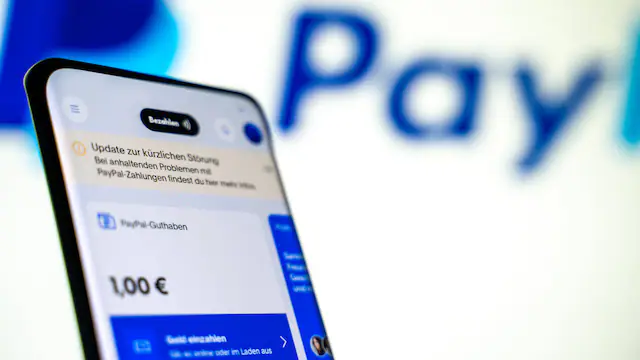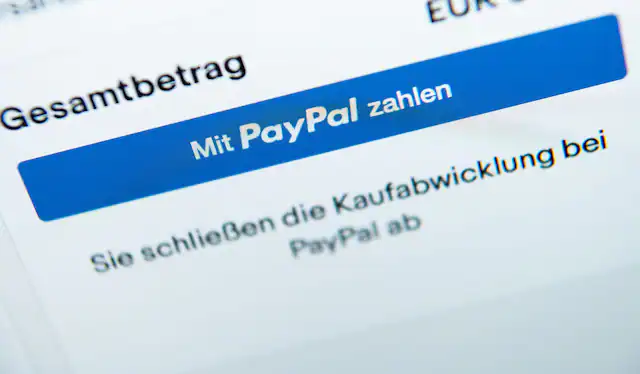After a huge security breach at PayPal: How those affected get their money
PayPal app displays error message after payment interruption.
A problem at PayPal led banks to stop billions of euros in direct debits. The financial services provider and the banks are now working to manage the impact.
Following the major security breach at PayPal and the blocking of bank transfers, the US payment service provider wants to help those affected get their money back as quickly as possible. “All legitimate transactions by merchants will be fully refunded,” a PayPal spokesperson told the German Press Agency.
Fraudsters tried to steal one billion euros with a debit
About a week ago, PayPal’s security systems, designed to detect fraudulent direct debits, failed. As a result, several banks in Germany stopped the direct debits forwarded by PayPal’s bank in Luxembourg, totaling a tens of billions of euros. These were direct debits in which PayPal debits money from customers’ bank accounts, for example, after they have made an online purchase.
According to information from dpa, a single fraudulent direct debit even exceeded the one billion euro mark. Other direct debits were in the hundreds of millions of euros. Due to these extremely large amounts, the fraudulent debit attempts quickly caught the attention of the banks. Merchants were particularly affected by the incident, as they were unable to access their funds or were delayed due to the bank blockade.
Savings Banks Association confident: “Everything will be done by the middle of next week”
PayPal apologized “for the inconvenience caused by the current events.” “Security remains our highest priority.” Should issues arise, consumers and merchants will be supported by PayPal’s Buyer and Seller Protection. “The issue has now been resolved, and we are working closely with our banking partners to resolve any discrepancies in customers’ accounts.”
A spokesperson for the German Savings Banks Association (DSGV), however, explained that it unfortunately took some time to reach a common understanding with PayPal about which processes were absolutely necessary to process all cases. “However, based on the current status, we are confident that, in cooperation with the payment service provider, it will be possible to have everything completed by the middle of next week.”
Six-digit number of transaction must be verified individually
During the conference call on Thursday regarding the half-year results, Thomas Groß, head of Landesbank Hessen-Thüringen (Helaba), pointed out that payment transactions have been running normally again since Tuesday, “naturally under close observation.” Due to the previous disruptions, numerous transactions had to be reprocessed. This will be “largely automated,” but in individual cases will also be done manually. Therefore, merchants waiting for their money cannot and do not need to take any action for the time being.
An industry expert told dpa that there are a six-digit number of previously blocked transactions nationwide that now need to be reviewed individually.

What PayPal users should do after the security breach
Customers, however, should take action and check their accounts specifically. These steps should be followed.
- Check your PayPal activity regularly: Check your transaction history in your PayPal account under “Activities.” This will help you quickly see whether payments were processed correctly or if there are any outstanding transactions.
- Check your checking account for debits: Compare your PayPal payments with the debits on your linked bank account. Due to the current outage, many direct debits were not processed—so your money should still be in your account.
- Identify open transactions : Incomplete payments are marked as “open” in your PayPal account. Clicking on the entry displays further details about the transaction.
- Avoid phishing emails : PayPal can send emails in the event of failed payments. Cybercriminals exploit such situations for phishing attacks. Don’t open links in emails—always log in directly via the PayPal app or the official website.
Source: Nach riesiger Sicherheitslücke bei PayPal: So erhalten Betroffene ihr Geld - CHIP

